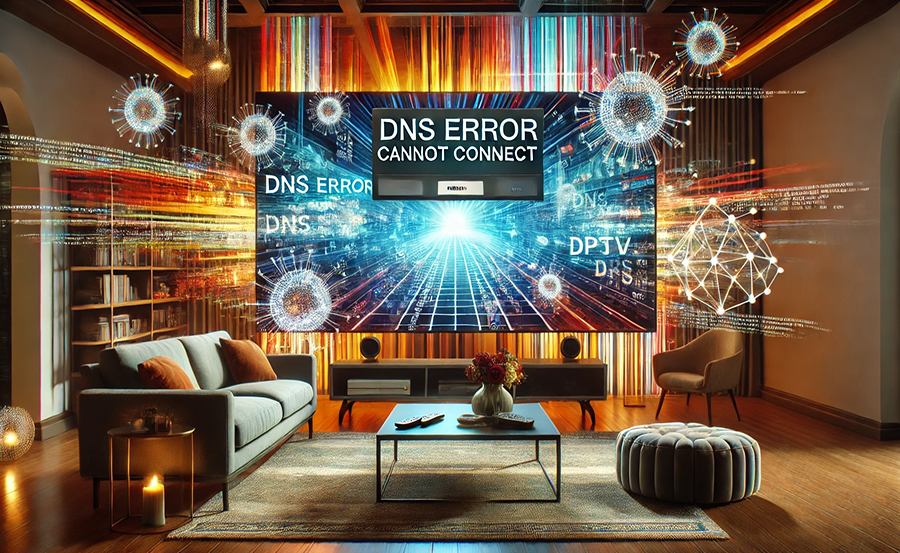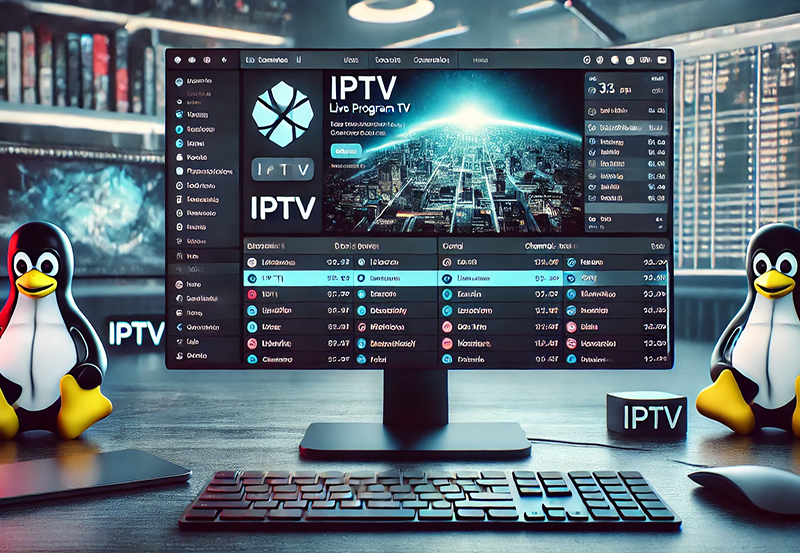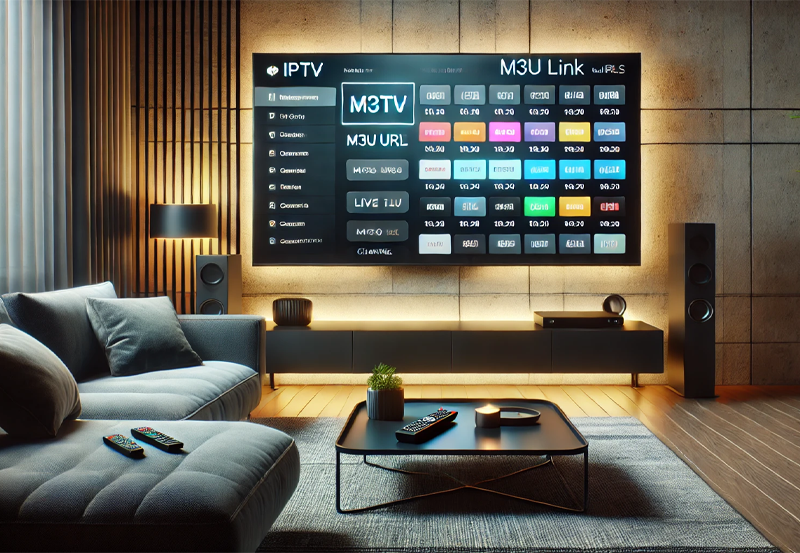The surge in popularity of live TV streaming is undeniable. With more viewers turning to IPTV, platforms like IPTV on Roku have become household names. However, amidst the excitement of instantaneous access to a world of content, many often overlook a crucial component governing the efficiency of their streaming experience—DNS, or Domain Name System. This often-underrated aspect can make or break your journey through the world of IPTV. Through this piece, affectionately titled “The Expert’s Guide to IPTV Enjoyment,” we aim to shed light on how DNS can influence your IPTV performance and explore viable solutions for any hitches you might encounter.
Understanding IPTV: A Brief Overview
Before diving into DNS specifics, it’s essential to grasp what IPTV actually is. Standing for Internet Protocol Television, IPTV delivers television content over the internet, unlike the traditional terrestrial or satellite formats. This innovation allows users to access content in real-time, tailor their viewing preferences, and explore an extensive library of on-demand content.
The Mechanics of IPTV
IPTV operates on a subscriber-and-server model. Consumers subscribe to IPTV providers who deliver channels and content through a set-top box or applications installed on devices like Roku. This system capitalizes on the existing internet infrastructure, allowing for flexible, user-specific broadcasting.
Expert Advice:
Get access to thousands of channels worldwide with XtremeHD IPTV, designed for sports lovers and movie enthusiasts.
Benefits of IPTV Streaming
Consumers opt for IPTV due to its spectrum of benefits:
- Wide Array of Channels: IPTV services offer numerous channels from various genres, catering to diverse tastes.
- Customization: Unlike cable TV, IPTV allows for more customized package options.
- On-Demand Content: Users can access shows, movies, and even past broadcasts at their convenience.
The Crucial Role of DNS in IPTV
DNS is often seen merely as the internet’s phonebook. Its role in IPTV cannot be overstated. DNS translates human-readable domain names into IP addresses required for devices to fetch data from the internet. A seamless DNS resolution is key to a smooth IPTV experience. Any hiccup in this process can cause buffering, lagging, and sometimes a complete outage of service.
How DNS Works in Live TV Streaming
When you select a channel or video using IPTV, a DNS query is initiated. This query translates the domain name of your IPTV source to an IP address that your device can access. Quick and reliable DNS resolution lets you enjoy uninterrupted viewing, making DNS a vital component behind the curtains of live TV streaming.
Common DNS-Related IPTV Issues
Several issues can arise from inadequate DNS configurations, including:
- Prolonged buffering during peak streaming hours.
- Poor video quality, disrupting your viewing pleasure.
- Challenges accessing certain content or broadcaster restrictions.
How Changing DNS Can Impact IPTV on Roku
Users utilizing IPTV on Roku might find differences in performance when switching DNS providers. Free DNS services, though alluring, can occasionally struggle under large volumes, affecting your streaming quality. Opting for reliable DNS servers can assure stable and rapid content delivery.
Optimizing DNS for a Better Streaming Experience
Encountering IPTV problems due to DNS is fairly common and resolvable. Here are actionable strategies:
Switch to a Fast and Secure DNS Provider
Several DNS providers promise faster resolution times and enhanced security features. Notable names include Google Public DNS, Cloudflare DNS, and OpenDNS. Shifting to these services can ensure improved streaming performance by lowering latency.
Understanding the Cache and Its Impact
Improperly cached DNS entries can lead to inefficiencies. Regularly clearing your DNS cache, or setting it to refresh frequently, can prevent outdated data from disrupting your streaming experience.
Utilizing VPNs for Content Accessibility
VPNs can sometimes support DNS resolution by masking your location. This is particularly useful for accessing geo-blocked content, but ensure that your VPN doesn’t throttle your connection speed.
Practical Solutions and Tips
Regular Software Updates
Keeping your IPTV apps and devices, such as those on Roku, updated ensures that you benefit from the latest bug fixes and performance enhancements, which often include DNS optimizations.
Consider Professional Consultation
If you’re unsure about DNS settings or IPTV configurations, consulting with a network professional can save time and stress, allowing you to get back to enjoying “The Expert’s Guide to IPTV Enjoyment” without interruption.
Optimize Your Home Network
Configuring your router to prioritize IPTV traffic, or utilizing dual-band routers, can enhance the quality of your live TV streaming sessions, reducing the impact of DNS-related delays.
In FAQ: Addressing Common Concerns

What Is DNS and Why Is It Important for IPTV?
DNS, or Domain Name System, is crucial for translating domain names into IP addresses, enabling your devices to retrieve data from the internet. For IPTV, fast and reliable DNS is vital for uninterrupted streaming.
How Can I Change My DNS Settings for Better IPTV Performance?
Access your network settings through your device or router to alter your DNS provider. Opt for renowned services like Google Public DNS or Cloudflare DNS for robust performance.
What Are Some Common Signs of DNS Problems in IPTV?
You might notice frequent buffering, video quality drops, or errors in accessing specific content, signalling a potential DNS issue.
Is Using a VPN Beneficial for IPTV?
While a VPN can help bypass geo-restrictions and occasionally bolster DNS performance, ensure your chosen VPN service maintains good speed to avoid additional latency.
Can DNS Affect My Streaming Quality on Roku?
Absolutely. DNS affects every aspect of your internet connectivity including streaming on devices like Roku. Ensuring you have a reliable DNS provider can enhance the streaming quality significantly.
How Often Should I Clear My DNS Cache?
Regularly clearing your DNS cache, particularly during internet connectivity issues, can help maintain efficient DNS resolution. It’s recommended to clear it every few weeks or when problems arise.
Should I Consider Upgrading My Router for Better IPTV Experiences?
If your current router is unable to prioritize IPTV traffic efficiently or lacks dual-band capabilities, upgrading could improve your overall home network performance and streaming quality.
Demystifying IPTV Stream Player Interfaces and Settings





